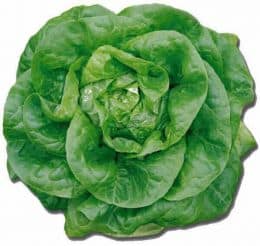The Shallot (Allium ascalonicum) is aperennial plant that seldom produces seeds and therefore must be increased by division of its compound bulbs, which is made up of several bulblets or cloves held together at the base.
A sheath as in garlic does not encase the bulbs. The bulblets are planted in the same manner and at the same season, as are onion sets, each set developing into a compound set. The mature bulbs are harvested, cured and stored in the same manner as onions. In suitable storage, the bulbs keep from one season to next.
Difference between Shallots and Onions
Shallots and onions are quite different from each other. Although they are very similar in taste, there are some obvious differences. Shallots are used mainly in Chinese cuisines, while onions are used in Mexican, Indian, and Thai cuisines. Most people think that shallot is a Chinese way of referring to onions. However, that is not true as there are remarkable differences between these vegetables.
There are two varieties of onions. One is pink in color, and the other is white in color. In the United States, onions also take over the name of the local place that they grow in. The main difference is that shallots are white in color, and more pungent in taste and smell compared to the onions. Shallots come only in white color, and they are usually tied together in a bunch and also sold that way. Whereas onions are sold individually, and come in a bag or you can pick your own from a box. For a layman, this is an easy way to tell the difference between shallots and onions. In some countries, shallot is called escallop. Unlike onions, shallots grow as single bulbs. They somewhat are similar to growth in garlic. Shallots can be used in cooking as well as in pickles. Shallots are also deep fried to add taste and flavor to several dishes.
Nutrition Benefits Of Eating Shallot
- Recent studies have proven the fact that out of all the varieties of onions, shallots are particularly effective against liver cancer cells. Shallots contain 6 times more phenoplast than onions. It helps the liver to remove toxins from the body and have glucosides to inhibit and kill cancer cells.
- Shallots are also helpful in inhibiting stomach cancer. Regular intake of shallots can help the stomach stay away from any kind of stomach infections.
- Shallots are very good for patients who have symptomatic atherosclerotic disease, cardiovascular disease, heart attacks and stroke. It produces an anti-coagulant that thins the blood and exhibit strong anti-platelet activity.
- Shallots help in lowering the blood sugar levels in people with diabetes. They prevent the degradation of insulin and increase the metabolism of glucose.
- Shallots also aid brain functions and are very effective against Alzheimer’s disease.
- Shallots contain sulfur contents that can make the skin look younger. Daily shallot intakes will be extremely helpful for you in the long run.
- Daily consumption of shallots helps in the growth of bone tissues and it also reduces the risk of developing osteoporosis by 20%. It contains Prostaglandin A-1, a powerful agent that can lower blood pressure.

